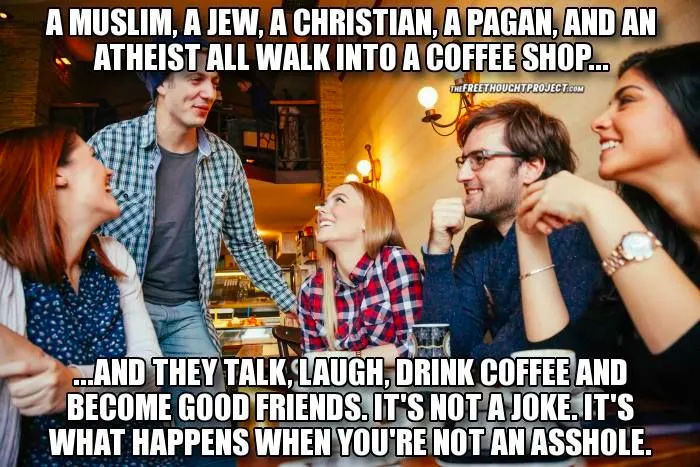Some of you may know my personal story of losing eternity. It relates closely to my opinions on where morality comes from. Recently I've been thinking about non-material, big "T" Truth and how it relates to our beliefs about theism and atheism.
When humanist/atheist/materialists and spiritual theists debate their worldviews, this is often the crux of the argument. If non-material "truths" like math and logic can exist then why can't a non-material god? It's a fairly good question, but I think it might also be a question designed to hide a deeper fear. Being sure of yourself and your place in reality brings comfort. Knowing the truth sets you free, as they say.
Does that imply being unsure of the truth makes you a slave? If there are truths to be known, I think, yes, we can be slaves to ignorance. But what if this solid ground we like to stand on is a bit more shaky then we realize? When it comes to religions, for example, there are many interpretations and sects, many different people convinced they have the single, perfect, big "T" Truth. The same can be said for different scientific understandings of the universe which have changed (I would argue improved) with time.
What if the non-material "truths" we feel sure of are actually just useful tools we've discovered over time?
What if we used the languages we created to describe conventions we formalized for explaining predictable outcomes in our known reality (math, logic, etc)?
What if it's all open to reinterpretation and yet, at some point, we stopped concerning ourselves with whether or not the sun will rise tomorrow or if the "laws" of physics will continue to function a year from now? What if, instead, we just make assumptions, again by convention, and move on to more interesting concerns?
Some may argue that's the same as faith in non-material or supernatural things. For me, there is one very important distinction. These concepts and conventions (math, logic, the scientific method, etc) can be universally shared and explained across every culture and people without the need for a personal revelation experience. They can be taught, expressed, understood, challenged, improved upon, and more. To me, they aren't big "T" Truth. They are just useful conventions, open to change and improvement if something better comes along.
Some of the most successful religions in the world can almost claim the same, which may be why we humans latch on to these shared worldviews so strongly: because they work. Most successful religions change with time as well. Early interpretations might not be recognizable today. Fundamentalists might recoil at that or do a bit of revisionist history to cover it up, but I see it as a good thing. Also, there are many ways to explain it, ways god (or gods) could bring a new revelation to their creation once that creation is ready for it.
So what do we do when these worldviews don't work? What about when these worldviews turn otherwise peaceful, friendly individuals into tribal enemies? What about when people fall into destructive nihilism without a purpose or god to believe in or when religious zealots harm others because "god wills it"?
That seems to be a good place to critique these worldviews from all sides.
What do we use as a measuring stick to determine if something "works" or if it doesn't? As far as I understand, it comes down to the wellbeing of conscious creatures. When a religion negatively impacts wellbeing, most people in the world tend to agree it's a "bad" religion or cult. When someone without faith lives each moment purely for their own selfish senses to such a degree they end up harming others to get what they want, most people in the world tend to agree that person is "bad" and should be avoided.
These are things we can agree on. They follow simple concepts like the NAP (non-aggression principle) and the Golden Rule ("Do unto others as you would have them do unto you"). This is common ground we can find towards a future which values love, compassion, and understanding. A future where wellbeing becomes the measuring stick. In that world, it may not make sense to try and convert the atheist who is at peace with themselves and the world around them. In that world, those who don't believe might honor those who do and appreciate the great benefit that belief brings to them and their communities.
I understand many who follow me here on Steemit and many of my friends elsewhere are saddened to know I no longer have religious faith. For some, it's too much, and they need to pull away and disconnect. I understand that. I did it in the past myself when I thought people were leaving fellowship and turning from the god I believed in so much. I'm hoping for a future where worldview differences like this no longer separate us, and we can respect those we don't agree with, possibly even those we can't understand as long as we value human wellbeing.
As I write this, I can't help but think of this meme:

In short, let's not be assholes. :)
Luke Stokes is a father, husband, business owner, programmer, and voluntaryist who wants to help create a world we all want to live in. Visit UnderstandingBlockchainFreedom.com









